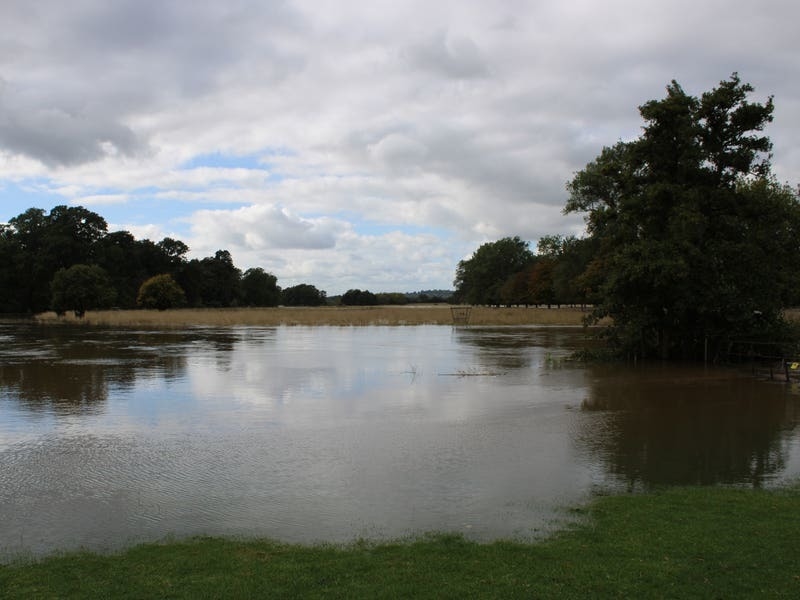
Imagining Africa under Donald Trump as he returns to power in January 2025 should be the most legitimate of all concerns. Africa’s actorness in global politics is still the weakest in whichever realm of power considered, be it structural, institutional, discursive or coercive. Subsequently, it is still the most dictated to actor by its others.
These defining features of African actorness have historical explanations which, in turn, explains why the continent’s future under a Trump is worth critical unpacking. In any case, Africa’s future would still be a subject of concern and analytical attention even if a Trump were not coming to judgement. Not if the world is at a juncture that could be tense even at the best of time.

The last great power security competition led to two world wars. The world is at that moment again, with a multiplicity of rising powers basically bandwagoning against the United States if we are conceptualising BRICS in the language of neorealists in international relations. At a time like this, the most revealing indicator of the direction the world is heading is the language game of political leaders, military commanders, diplomats, leading academics and the media.
These are the rule writers of world politics and they accomplish that task by circulating power through language or words. As Nietzsche postulated long ago, the words we use are never innocent but inherently about complicit in an agenda of overpowering and conquest. The most trending language in global politics today must be Trump’s war cry of ‘Making America Great Again’ aka MAGA.
Even in and of itself, without further contextualisation, MAGA comes with a bodyguard of questions. What greatness has America lost? How was the greatness lost and how might the project of restoring this greatness sit with the burning desire of America’s global Others to be great too? Most analysts of MAGA track it back to 2004 when the late Samuel Huntington argued for a restoration of the essential America in the book Who Are We? The Challenges to America’s National Identity. Huntington did not disagree with America being a nation of all-comers.
But he asserted ownership of America by the White, Anglo-Saxon elements which category he claimed were being overwhelmed and displaced or were facing such risks along with their core values. Earlier on in his agent provocateur’s text – Clash of Civilisations-he advised the United States to stop meddling in the internal affairs of other nations and peoples in the name of human rights, withdraw to its shell and fortify to defend Western ideals. What else could MAGA be understood as if not the figuration of the Huntington imaginary as captured in his last two books mentioned above?.
The implication is that Trump/MAGA constitute a critique and break with American foreign policy history. Published initially in 1992 and revised in 1998, U.S.
based Australian political scientist, Prof. David Campbell’s Writing Security:American Foreign Policy and the Politics of Identity has remained the most authoritative text on what constitutes American foreign policy in (post-Cold War) International Relations scholarship. No other text on American foreign policy has been as a compelling read for intellectuals of statecraft around the world as Campbell’s.
In that book, whatever we call foreign policy is reduced to America’s global politics of identity or what the author calls the practice of differentiation implicated in the confrontation between the (national) self and the Óther and their modes of figuration (P. 99). Before Campbell arrived at this analysis, American political scientist, Michael Desch, said in an essay titled “America’s Liberal Illiberalism: The Ideological Origins of Overreaction in U.
S. Foreign Policy” that American foreign policy suffered from “deep and unwritten tyrannical compulsion” which quickly turn occasional shadows crossing its path into monsters, paint such enemy monsters in satanic terms but with no idea what to do if the ‘enemy’ were “either bigger or different.” (P.
13). Both Desch and Campbell are united in the argument that this is precisely how the world ends up with the range of threats the U.S.
has defined from time to time, be it the Cold War or its everywhere war, otherwise known as Global War on Terror, to name the two most involving examples of America’s “evangelism of fear” in the name of foreign policy. The book’s demonstration of how the actual Cold War emerged from a flurry of scary metaphors of world communism, turning the “long telegram” – the cable from George Kennan, the U.S.
ambassador in Moscow on the situation on ground – into a framework for confrontation remains a classic of interpretivism. What the foregone points at is the imperative of factoring in the likely outcome of what is clearly a rupture in American foreign policy involving a clash between MAGA and Writing Security by anyone concerned with how Africa will fare under Trump. Taking note of that confrontation is all that is possible now because the contingent nature of social dynamics will keep embarrassing the enterprise of prediction in the social sciences.
A lot will depend on variables no one, including Trump, can be precise about even as the dynamics begin to play out from January. What any observer can consider an unfailing signal is the language of “Africa rising” and the battleground it has already delineated Africa into in American calculus on the one hand and China (and certainly other rising powers) on the other. African leaders who think they are shielded against coups, for instance, will soon have to think twice as the MAGA imaginary might not be that keen in frowning at every coup everywhere in Africa in the face of a China advance and feared ascendancy.
The hint to this effect was in the open at a recent Carnegie function in relation to Africa. Africa’s centrality in the world under MAGA is not the issue in debate. What is missing is the African self-definition and the figuration and deployment of that sense of collective self to discipline Africa ‘s negotiation with its Others.
Unless that’s done, Africa will remain unable to do what some of its philosopher’s, particularly Achille Mbembe, are asking it to do and which is to think the world from Africa. In other words, the problem is that, right now, Africans are thinking the world from London, Paris, Washington and Brussels. As long as that is the case, their people or the masses will continue to count for nothing because the centres of power and authority in world politics do not have vocabulary for pre-industrial human beings.
But how can African leaders think the world from Africa without settling the African ontological identity question? Interestingly, that doesn’t seem to be high on the agenda of African leaders as much as tenure elongation, mostly through abrupt amendment of the constitution to that effect. Decolonial warriors across the world are working hard on that problem but the process would certainly move faster if it were to become an AU Commission’s research agenda. Onoja is a critical Geopolitics Researcher.
.










